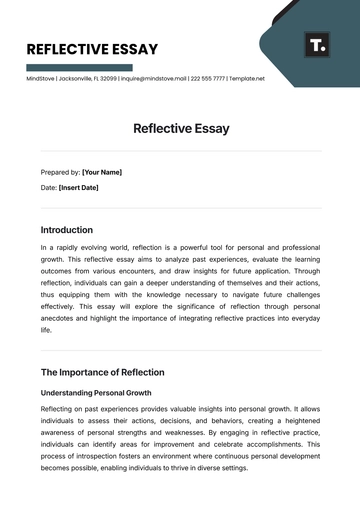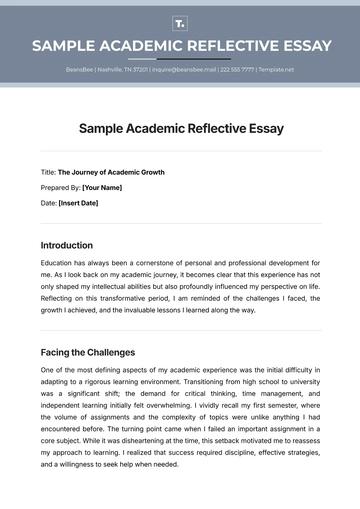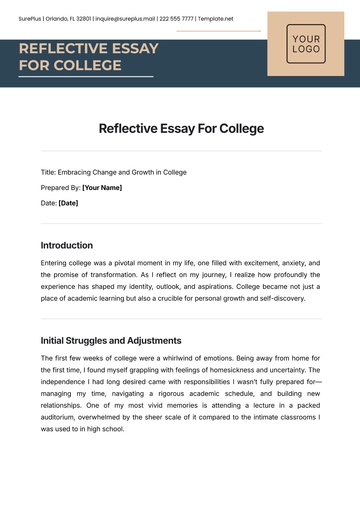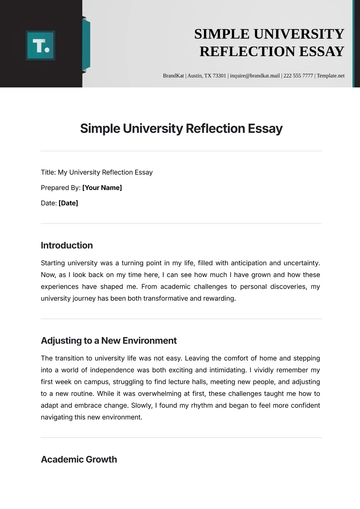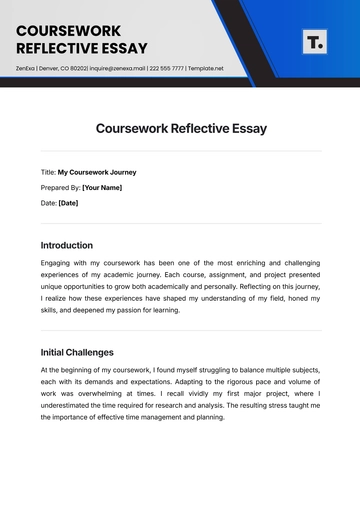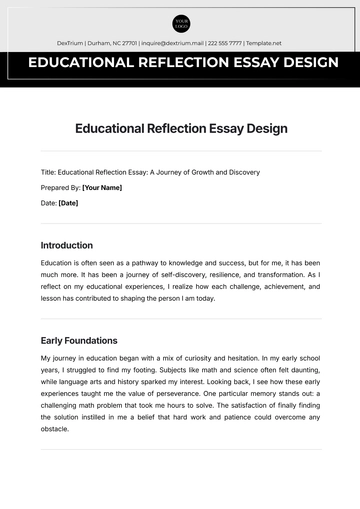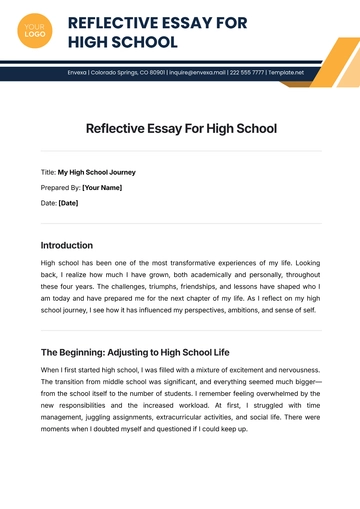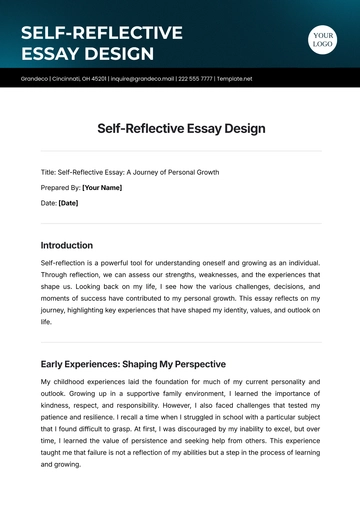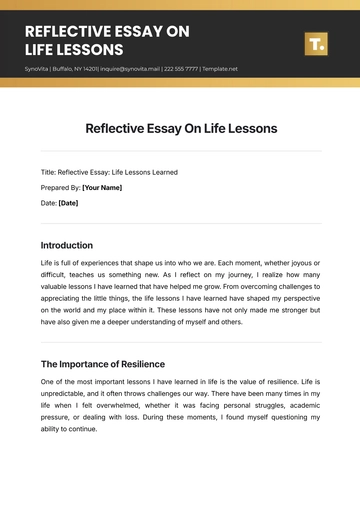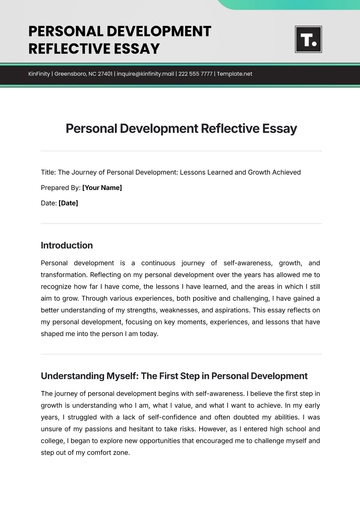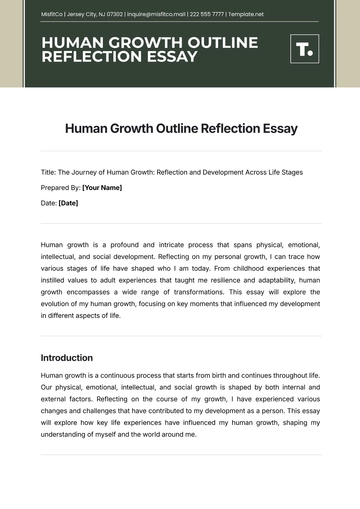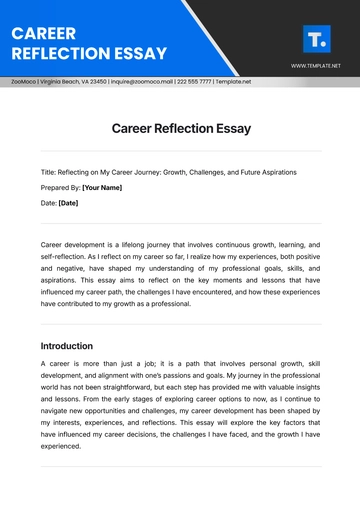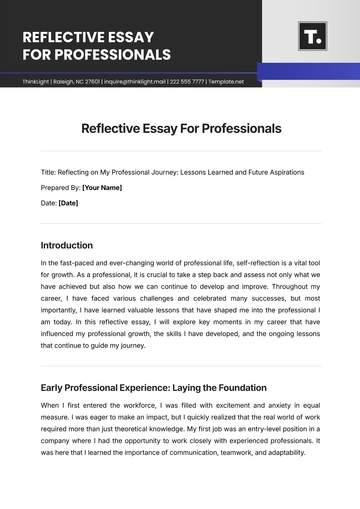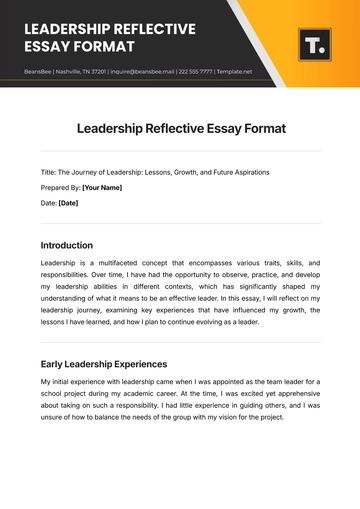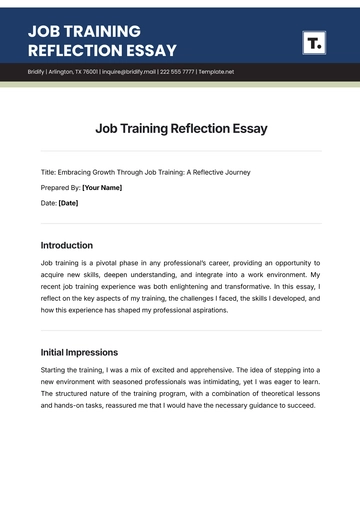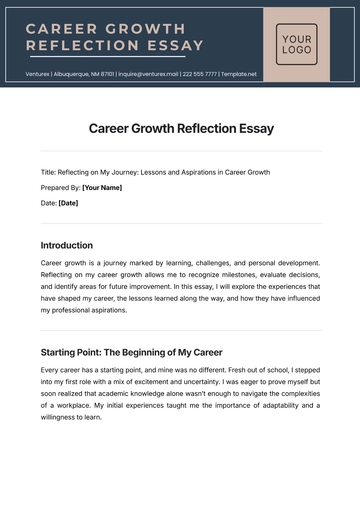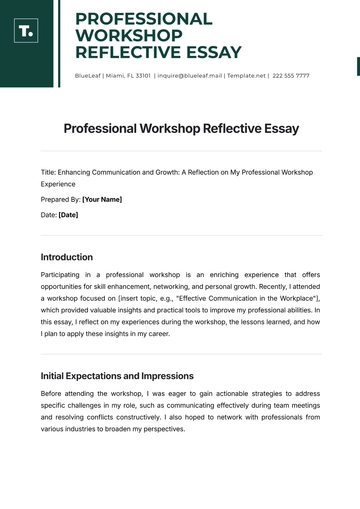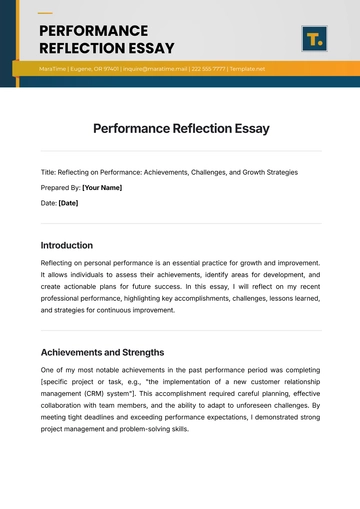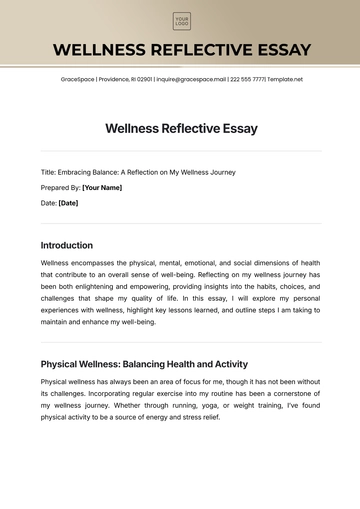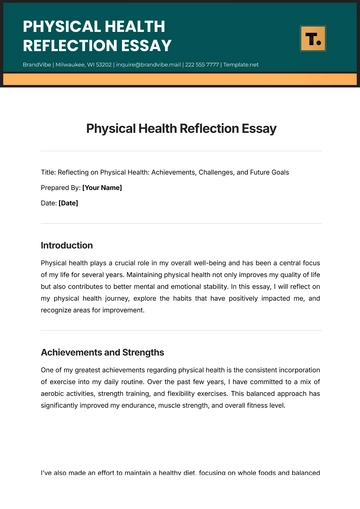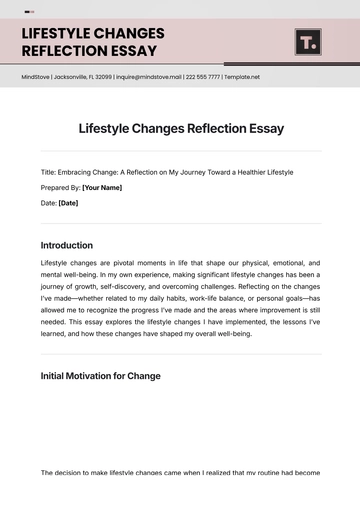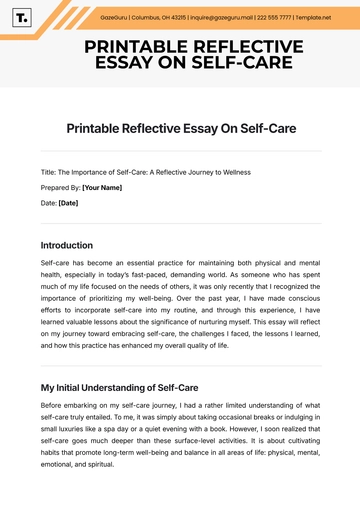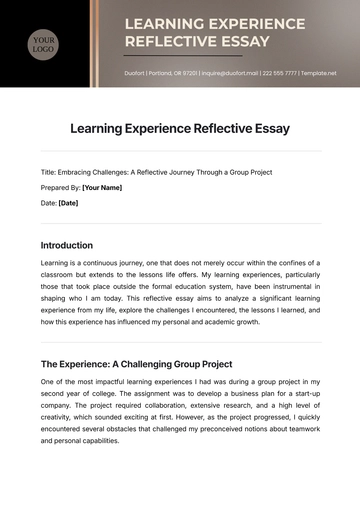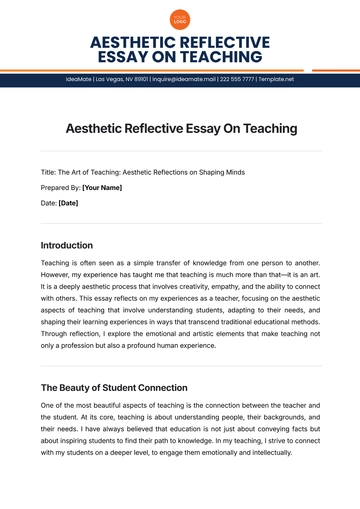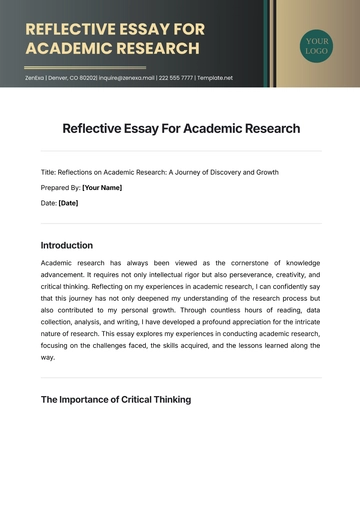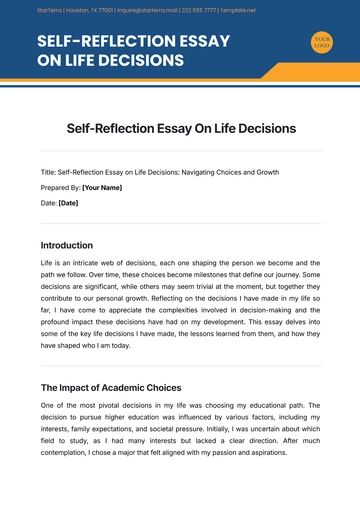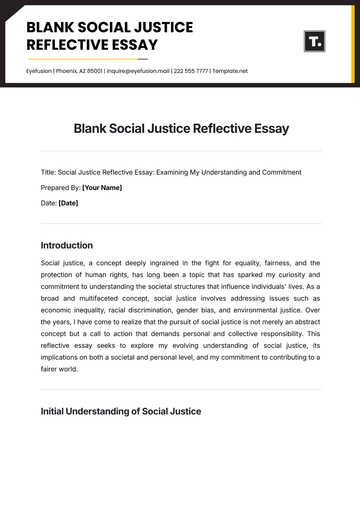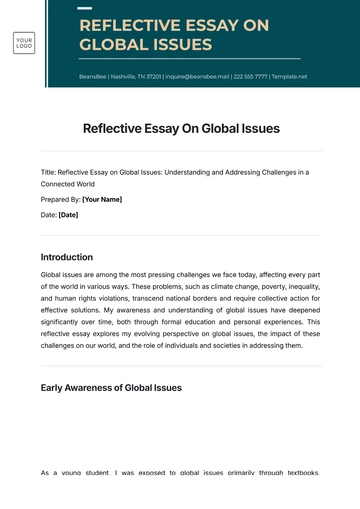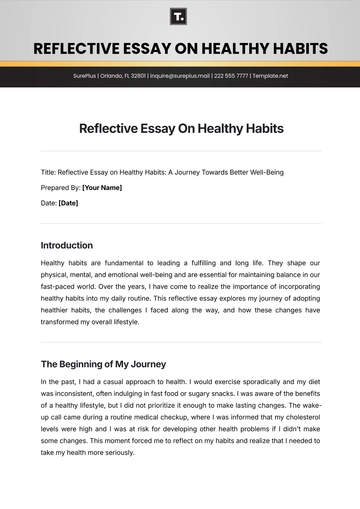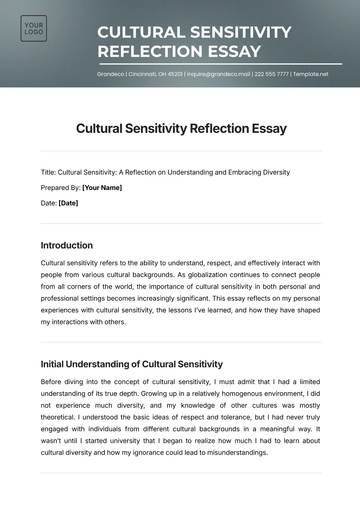Free Cultural Sensitivity Reflection Essay
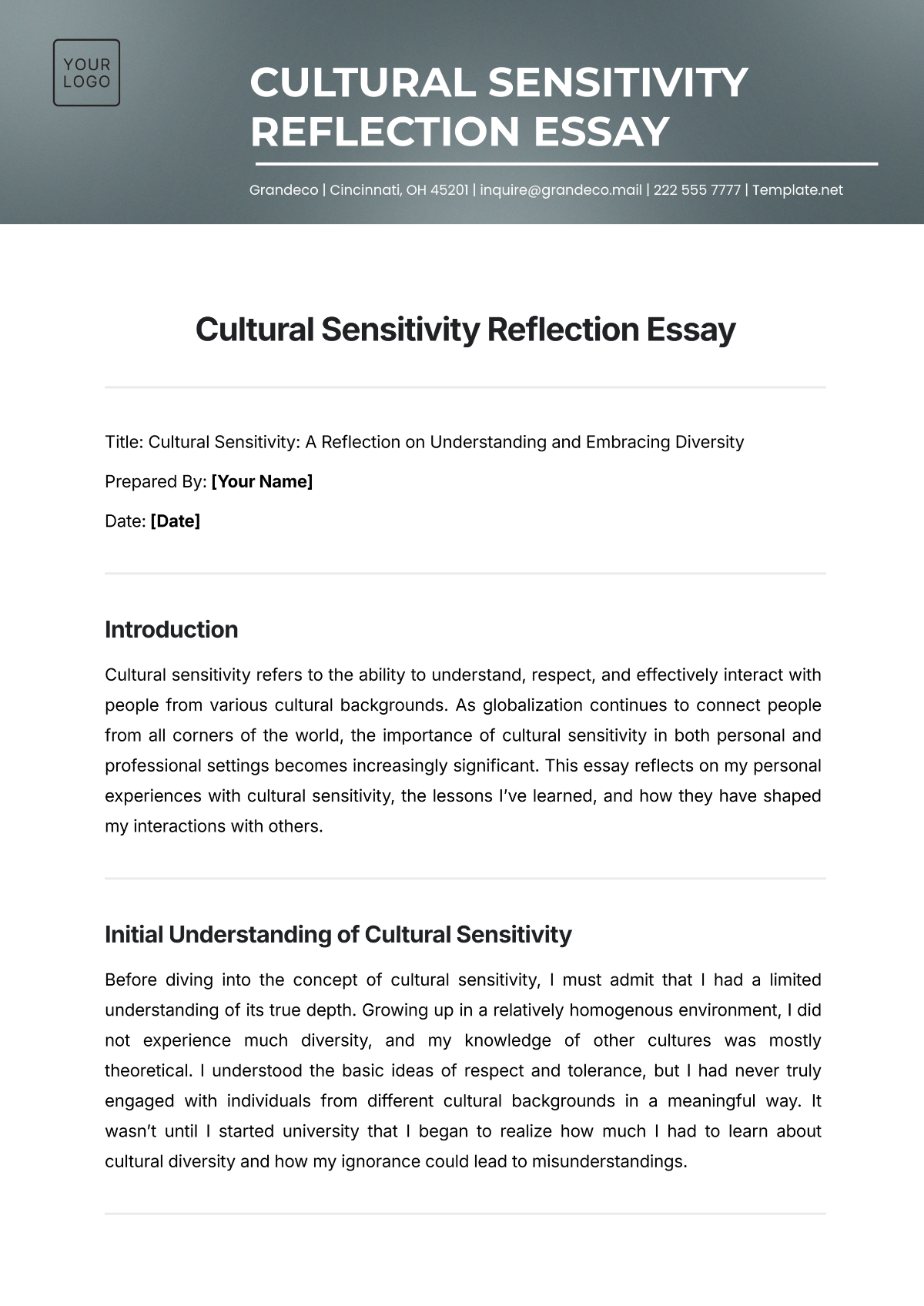
Title: Cultural Sensitivity: A Reflection on Understanding and Embracing Diversity
Prepared By: [Your Name]
Date: [Date]
Introduction
Cultural sensitivity refers to the ability to understand, respect, and effectively interact with people from various cultural backgrounds. As globalization continues to connect people from all corners of the world, the importance of cultural sensitivity in both personal and professional settings becomes increasingly significant. This essay reflects on my personal experiences with cultural sensitivity, the lessons I’ve learned, and how they have shaped my interactions with others.
Initial Understanding of Cultural Sensitivity
Before diving into the concept of cultural sensitivity, I must admit that I had a limited understanding of its true depth. Growing up in a relatively homogenous environment, I did not experience much diversity, and my knowledge of other cultures was mostly theoretical. I understood the basic ideas of respect and tolerance, but I had never truly engaged with individuals from different cultural backgrounds in a meaningful way. It wasn’t until I started university that I began to realize how much I had to learn about cultural diversity and how my ignorance could lead to misunderstandings.
Personal Experience with Cultural Sensitivity
One pivotal experience that helped me develop a deeper understanding of cultural sensitivity occurred during a group project in college. My group was diverse, consisting of students from different ethnicities and nationalities, including Asian, Hispanic, African American, and Caucasian backgrounds. Initially, I found it difficult to navigate our differences in communication styles, work habits, and expectations. There were instances where some team members seemed disengaged, while others appeared frustrated by the lack of progress. I realized that my approach to teamwork, which I had been accustomed to in a more homogeneous setting, was not going to work in this diverse environment.
To address the situation, I made an active effort to learn more about each person’s cultural background. I asked questions, listened to their perspectives, and tried to understand how their cultural upbringing influenced their communication styles and work ethics. Through open conversations, I discovered that some team members valued personal relationships and trust before diving into tasks, while others were more focused on efficiency and meeting deadlines. By acknowledging these differences, we were able to adapt and work more cohesively as a team. This experience taught me the importance of being open-minded, patient, and respectful of cultural differences.
Challenges Encountered
Despite my growing understanding of cultural sensitivity, there were still challenges along the way. One particular challenge arose when I traveled abroad for a semester in a country with a culture that was vastly different from my own. The cultural norms were unfamiliar to me, and I found it difficult to adjust at first. I had trouble understanding the local customs, which affected my ability to connect with others. At times, I felt frustrated and isolated because I didn’t fully grasp the language or social cues.
However, this experience became an invaluable learning opportunity. I realized that cultural sensitivity is not just about understanding someone else’s customs but also about stepping outside of your comfort zone and embracing unfamiliar experiences. It was through these challenges that I learned the importance of humility and the need to make an effort to understand others rather than simply expecting them to adjust to my way of life.
The Role of Cultural Sensitivity in Professional Life
In the professional world, cultural sensitivity is a crucial skill that can enhance collaboration, build stronger relationships, and create a more inclusive work environment. I’ve seen firsthand how cultural differences can lead to both enriching and challenging experiences in the workplace. I once worked with a colleague from a different cultural background who had a very different approach to problem-solving. At first, I found it difficult to understand her perspective, as her communication style was more indirect and nuanced, which differed from my direct approach.
Instead of assuming that her approach was inefficient, I took the time to learn more about her cultural background and how it influenced her communication style. I learned that in her culture, being indirect was a sign of respect and avoiding conflict. By adjusting my communication style and becoming more attuned to her needs, I was able to collaborate more effectively with her. This experience reinforced the importance of cultural sensitivity in professional settings and how it can lead to stronger teamwork and greater success.
Lessons Learned
Over time, I have learned several key lessons about cultural sensitivity. First, it is crucial to approach every interaction with an open mind, recognizing that our differences are not obstacles but opportunities for growth and learning. I also learned the importance of actively listening to others, being mindful of their perspectives, and adapting my communication style to suit the situation. Cultural sensitivity is not just about understanding differences—it is about respecting them and finding common ground where we can work together harmoniously.
Additionally, I have come to appreciate that cultural sensitivity extends beyond just recognizing differences in ethnicity or nationality. It also involves understanding factors such as gender, socioeconomic status, and educational background. Everyone’s life experiences shape their worldview, and by being sensitive to these factors, we can create more inclusive environments that foster mutual respect and understanding.
Conclusion
In conclusion, cultural sensitivity is an essential skill that enhances both personal and professional interactions. My experiences with cultural diversity have taught me the importance of being open-minded, respectful, and adaptable. By understanding and embracing cultural differences, we can foster stronger relationships, avoid misunderstandings, and contribute to a more inclusive and harmonious world. I will continue to cultivate cultural sensitivity in my daily life, knowing that it will not only benefit me but also the communities and workplaces I am a part of.
- 100% Customizable, free editor
- Access 1 Million+ Templates, photo’s & graphics
- Download or share as a template
- Click and replace photos, graphics, text, backgrounds
- Resize, crop, AI write & more
- Access advanced editor
